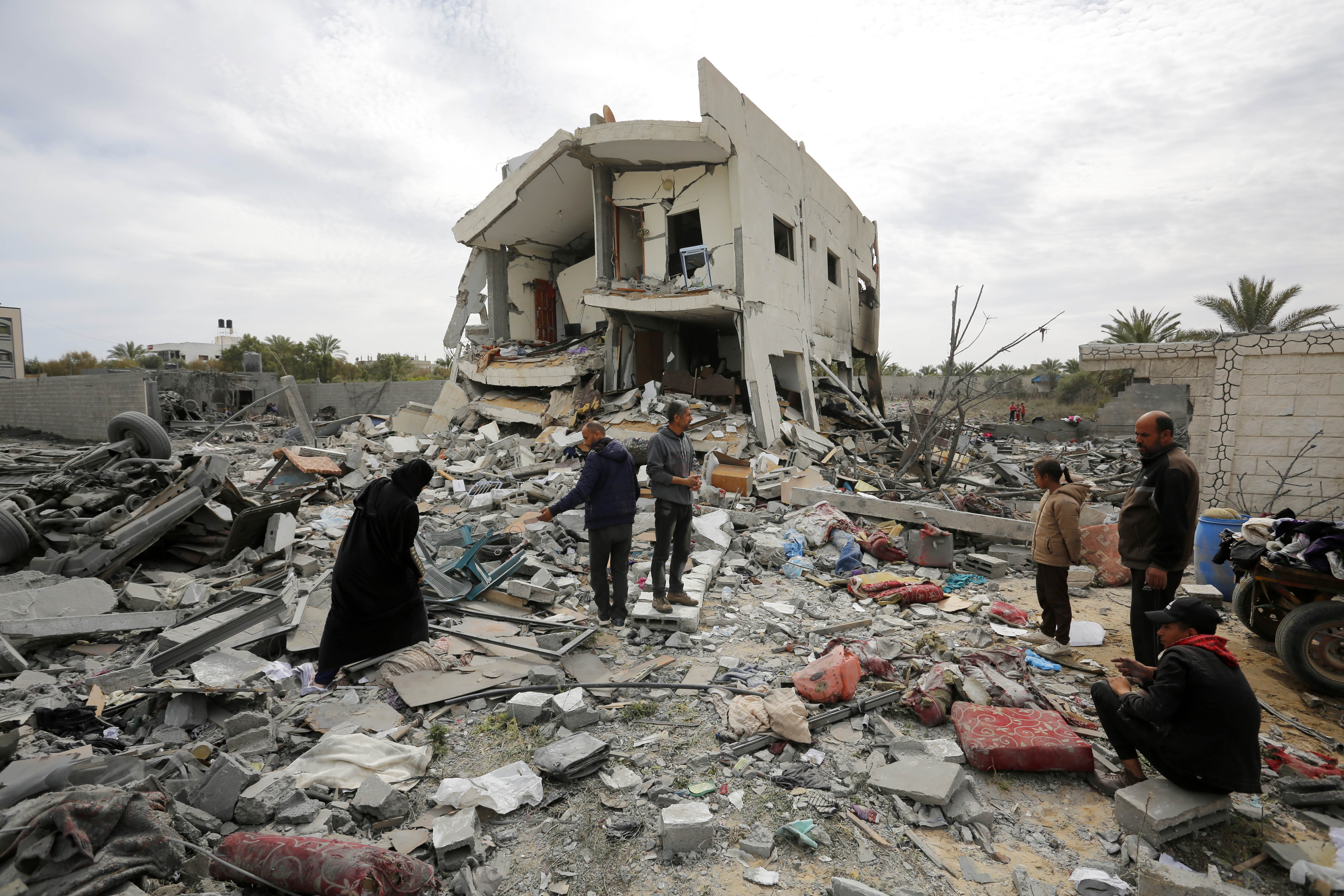‘We cannot eat, or drink, and aid is very scarce’
While some aid is being airdropped or delivered by sea, experts, NGOs and residents say it’s nowhere near enough to meet the needs of millions of Palestinians.
“The situation is so bad that no one can imagine it, and the ship, even if it helps, will be a drop in the ocean, because the entire region is in need of aid, and people are competing to take aid from the shore,” Zahr Saqr, a displaced Palestinian, said.
Airdrops have caused chaos, with several people killed by falling pallets when parachutes failed to open.
“We keep waiting for aid. This is not a solution, whether by ship or by plane. We saw planes dropping aid and people fighting over it. There are some children who drowned in the sea for aid,” Wael Miqdad, a Khan Younis resident, said.
Aid agencies are warning nearly 600,000 people are on the brink of famine. “The living situation is very bad. We cannot eat, or drink, and aid is very scarce. They told us there is aid in the south, but it is very scarce,” Iman Wadi, another displaced Palestinian, said.
Doctors in Rafah struggle to provide care for patients
Volunteer doctors say they’re struggling to provide medical care to people in Rafah, southern Gaza. The UN says 1.5 million Palestinians have sought shelter in Rafah after Israel’s intense attacks in northern and central Gaza.
Rafah lacks the healthcare facilities to treat this many people and a shortage of medicines and supplies is worsening the suffering. “It’s impossible for medical facilities to accommodate this number of patients. We’re operating in a camp housing around 1.5 million people. We receive medications to cover a week, but they run out in just one day,” Ahmed Saad, volunteer at medical point in Rafah, said.
Samar Gregea, a displaced Palestinian from Gaza City, said: “We’re facing shortages of medications, especially pediatric medicines. There are a lot of patients in the camp, with all children suffering from malnutrition, and the widespread presence of hepatitis A. Children require foods high in sugars, like dates, which are currently unavailable.”
Injured people seek medical help after Israeli attack on Deir el-Balah home
Israeli attacks on Deir el-Balah in central Gaza killed at least 12 people and injured many more

Doctors at Al-Aqsa Martyrs Hospital examine people injured in the Israeli attack on a house belonging to the Thabet family in Deir el-Balah
The injured, including children, wait for medical assistance at Al-Aqsa Martyrs Hospital in Deir el-Balah
Israeli pattern of targeting families inside residential homes
We’ve been seeing this pattern of attacks by Israel in the past weeks where it targets entire families inside homes they’ve been sheltering in. There have been a lot of confrontations in the central area, namely Deir el-Balah, the refugee camps and the western parts of the central area.
Those injured do not get the necessary treatment and the medical intervention required to save their lives as they come with shrapnel that fractures their bones or makes them bleed severely.
The aftermath of these attacks is the fact that many people are becoming internally displaced as the kind of bombs that are being used also cause damage to the surrounding area. This causes further mounting misery and miserable conditions.

Residents inspect the rubble after an Israeli attack over an apartment building in Deir al-Balah




















